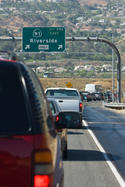Few areas in America have experienced a more dramatic change in fortunes as extreme as Southern California’s Inland Empire. From 1990-2008, the Inland Empire (Riverside & San Bernardino counties) has been California’s strongest job generator creating 20.1% of its employment growth. The area also consistently ranked among the nation’s fastest growing large metropolitan areas. However in 2008, the mortgage debacle has sent this area, which had not seen year-over-year job losses in over four decades, into a steep downturn. read more »
Suburbs
Island of Broken Dreams
A The New York Times editorial wonders why foreclosure rates are so high in the two Long Island counties it rightly calls the “birthplace of the suburban American Dream.” After all, the area has “a relative lack of room to sprawl.” which in Times-speak should be a good thing, since “sprawl” is by definition both bad and doomed.
Yet it is precisely the constraints on new housing that has served as a principal cause for Long Island problems. read more »
The Geography of Change: Election 2008
As an old radical Democrat, I remained fearful that this fall would see another 2000 and 2004. But instead there was a massive shift of perhaps 10 million votes, or about 7 percent to the Democratic side. read more »
Of Houses, Castles and the Universal Dream
As I sit here in Beijing Capital International Airport waiting for a flight to Taiyuan, I realize something universal about people. Whether in the suburbs of Shanghai, Beijing, Wuhan, Xi’an, Shenyang, Shenzhen, Guangzhou, Nanjing or even in the historical accident of Hong Kong, some of the most beautiful single-family detached housing in the world is here. It is not extensive, because it is not affordable to the great majority of Chinese. read more »
Obama: Making History but Not Ending It
Barack Obama won a mandate among younger voters so large that it literally defies comparison, and with it, we're told, a mandate to retire tired old fights of little concern to this new generation. Yet in the long run, it may well be that his victory has only put on hold some enduring political conflicts and may even ignite new ones.
Obama’s 34-point, 66-32 percent win among the group that made up about 20 percent of voters and 60 percent of new voters was nearly four times the margin of John F. Kennedy in 1960 and Clinton in 1992. read more »
- Login to post comments
Two-Timing Telecommute Taxes
Telecommuting — or telework — is a critical tool that can help employees, businesses and communities weather the current financial crisis, and thrive afterward. However, right now, the nation is burdened with a powerful threat to the growth of telework: the telecommuter tax. This tax is a state penalty imposed on Americans who work for employers outside their home states and sometimes telecommute. read more »
St. Louis Blues
The night of the election, my husband and I greeted with elation the news that the presidency would go to Barack Obama. Then, seconds later, we hunkered down on the sofa with anxious expressions and asked the talking heads: “What about Missouri?” read more »
- Login to post comments
No More Urban Hype
Just months ago, urban revivalists could see the rosy dawn of a new era for America's cities. With rising gas prices and soaring foreclosures hitting the long-despised hinterland, urban boosters and their media claque were proclaiming suburbia home to, as the Atlantic put it, "the next slums." Time magazine, the Financial Times, CNN and, of course, The New York Times all embraced the notion of a new urban epoch.
Yet in one of those ironies that markets play on hypesters, the mortgage crisis is now puncturing the urbanists' bubble. The mortgage meltdown that first singed the suburbs and exurbs, after all, was largely financed by Wall Street, the hedge funds, the investment banks, insurers and the rest of the highly city-centric top of the paper food chain. read more »
Regulating People or Regulating Greenhouse Gases?
It seems very likely that a national greenhouse gas (GHG) emission reduction standard will be established by legislation in the next year. Interest groups are lining up with various proposals, some fairly benign and others potentially devastating.
One of the most frequently mentioned strategies – mandatory vehicle miles reductions – is also among the most destructive. It is predictably supported by the same interests that have pushed the anti-automobile (and anti-suburban) agenda for years, often under the moniker of “smart growth.” read more »
Turns Out There's Good News on Main St.
As the financial crisis takes down Wall Street, the regular folks on Main Street are biting their nails, watching the toxic tsunami head their way. But for all our nightmares of drowning in a sea of bad mortgages, foreclosed homes and shrunken retirement plans, the truth is that the effects of this meltdown won't be all bad in the long run. In one regard, it could offer our society a net positive: Forced into belt-tightening, Americans are likely to strengthen our family and community ties and to center our lives more closely on the places where we live. read more »





















